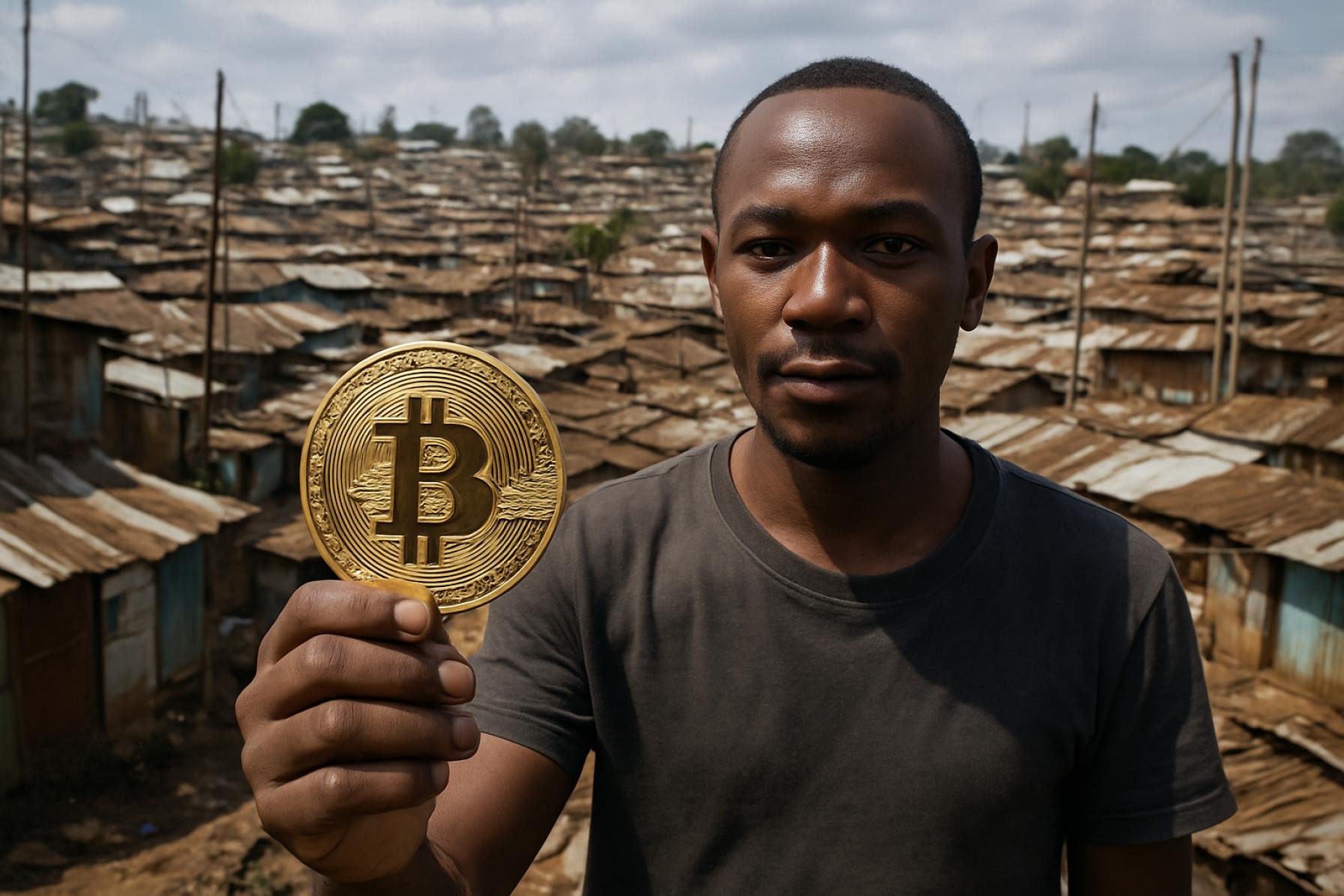Bitcoin Revolution: How Kenya’s Largest Slum Is Betting Its Future on Crypto

Kibera’s Crypto Boom: Why Nairobi’s Poorest Are Turning to Bitcoin for Survival in 2025
Discover how bitcoin is powering new hope in Nairobi’s Kibera slum, transforming daily life and sparking debates on financial inclusion.
- 200+ Kibera residents now use bitcoin for daily transactions
- $10,000 invested in local bitcoin grants since 2022
- 10% of merchants in Soweto West accept crypto payments
- 70-80% of net worth: Some residents’ exposure to bitcoin
Nairobi’s Kibera slum, often called Africa’s largest urban settlement, is witnessing a financial shake-up that few predicted: bitcoin is fast becoming both currency and lifeline.
Dirt roads lined with tin-roofed stalls now bear bright Bitcoin logos. Young garbage collectors are paid in crypto. Vegetable vendors carry QR codes. These are the new signs of an economic revolution—one that’s captivating the imagination of a community long shut out of traditional banking.
AfriBit Africa, a visionary Kenyan fintech company, is at the center of this movement. Their mission: unlock access to the global economy for the underbanked, all through a smartphone and a digital wallet.
Q: Why Are Kibera’s Residents Choosing Bitcoin Over Conventional Banking?
Many Kibera locals have struggled for decades to open bank accounts. Documentation requirements? Out of reach for most. Fees? Too high. Waiting in line for slow mobile transfers? Daily frustration.
By contrast, bitcoin slashes red tape. Residents can store value, pay each other, and even save—all without paperwork or prohibitive charges. One garbage collector, aged 23, switched away from Kenya’s dominant payment platform, M-PESA, and prefers bitcoin’s low cost and quick transfers. Small merchants agree: around 10% now get paid this way, loving the transaction freedom.
For more on how digital currencies are transforming Africa, visit CoinDesk or learn about financial technology at Finextra.
How AfriBit Africa’s Program Is Reshaping the Community
It all started in 2022, when AfriBit Africa began dispensing crypto-denominated grants to local trash collectors. These young workers became on-the-ground ambassadors for bitcoin. After a Sunday morning’s cleanup, each received a few dollars in BTC, adding up to $10,000 pumped into the neighborhood since launch.
Merchants soon followed. Some now collect a modest—but rising—portion of sales in bitcoin, citing instant settlement and zero transaction fees as game-changers.
Q: Is Crypto the Financial Freedom Soweto West Needs—or a Risky Gamble?
While residents celebrate newfound access and dreams of rising bitcoin prices, experts urge caution. Many in Kibera now have most of their savings in bitcoin—a volatile asset infamous for sharp swings. Financial consultants warn that such high exposure could place already vulnerable people in financial jeopardy.
Despite the risks, excitement remains high. Bitcoin’s price boom in early 2025 only intensifies local faith in crypto as a path out of poverty.
Read more about the global debate on cryptocurrency at Reuters and the regulatory landscape at BIS.
How to Start Using Bitcoin in Kenya’s Urban Slums: A Step-by-Step Guide
1. Download a reputable crypto wallet app on your phone.
2. Connect with local groups, like AfriBit Africa, for education and support.
3. Exchange mobile money (e.g., M-PESA) for bitcoin at trusted local kiosks.
4. Scan merchants’ QR codes to pay or get paid in BTC.
Stay safe: always check transaction fees and beware of bitcoin’s price swings.
What’s Next for Kibera’s Bitcoin Experiment?
The world is watching as Kibera’s Soweto West pilots a grassroots crypto economy. If it succeeds, it could become a blueprint for global financial inclusion in 2025 and beyond.
Are you ready to find out if Bitcoin is the future for unbanked communities?
Kibera Crypto Survival Checklist:
- Get educated: Learn the basics of crypto before you transact
- Diversify: Don’t keep all your savings in bitcoin
- Connect locally: Join a trusted financial collective or NGO
- Stay updated: Monitor prices and new regulations
- Prioritize safety: Use secure wallets and watch out for scams